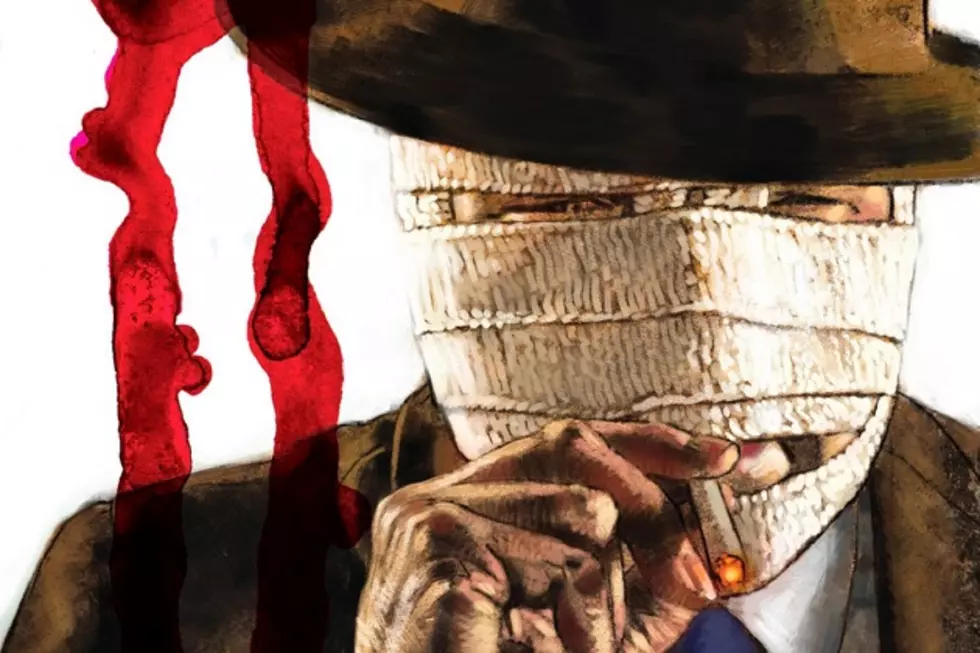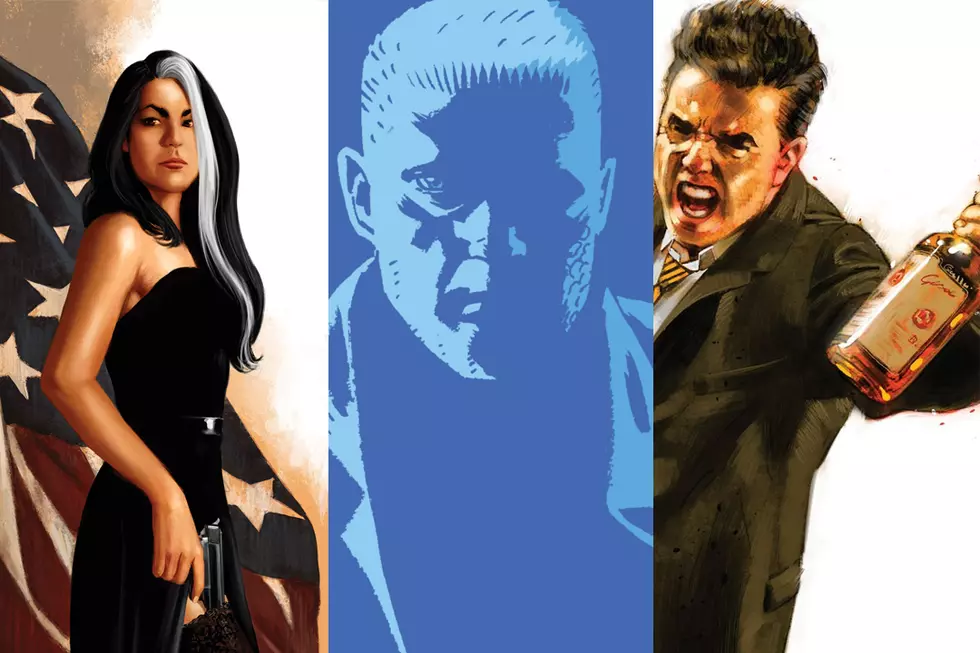
Hiding in Plain Sight: ‘Incognito’ and the Rebirth of the Pulps
 Zack Overkill is supposed to be in hiding.
Zack Overkill is supposed to be in hiding.
As one half of the superpowered Overkill Brothers, he was once respected and feared as a high-ranking member of the criminal organization Black Death. But after the death of his twin Xander -- and getting pinched -- he turned state's evidence against his former cohorts, forever condemning himself to a life looking over his shoulder.
Now, some years later we find him in witness protection, stripped of his rep, depowered, and schlepping a legion of files for his nobody twerp coworkers in Who Gives a Crap, USA. And his powers are coming back.
That's the central concept behind "Incognito," the newest comic from Ed Brubaker and Sean Phillips (with colorist Val Staples), and like everything they've done, it hooks you right from the start. It's a classic concept, simple, compact, and compelling, strong enough to drive any superhero book to new territory.
Too bad it's not a superhero book. It's a pulp book. Choke on that one, boners.The differences between pulp heroes and superheroes are subtle but fundamental – like two different languages using the same alphabet. The pulps began before fictional man could leap tall buildings or take a bullet to the eye, and in these worlds there are limits to what men, even very special ones, can do. There are good guy and bad guys, secret organizations, threats of world domination, strange powers... but somehow they are "more real," or at least more restrained, and a bright, colorful costume or over-the-top visual quirk is completely unnecessary.
Despite all of that, the pulp hero is somehow much odder than the superhero, thanks to the turbulent times that formed him. America was in midst of the greatest financial crisis of all time, the Great War just beginning to recede into the background as another loomed on the horizon, and rapid technological advancements abounded. What it left on the page was an odd mix of futurism, utopianism, and paranoia that seems to feed the genre's most successful characters.

The greatest flaw of superhero comics is that every story is always a superhero story. Colored though it may be with crime or romance or political intrigue, no matter how you've got it dressed up, it's still a superhero story. The true legacy of the pulps, however, lies in their ability to use virtually any type of hero to tell almost every type of story.
Pulps ran a gamut of genres: archaeological adventures, detective stories, spy stories, on and on and on. Though the definitions between these genres were at first clearly defined, as the pulp grew, delineations dissolved, now practically erased by time. It essentially became its own genre: the pulp story. And even though people would love to classify Brubaker as a superhero guy now, make no mistake, he has been writing pulp stories for years.
 Brubaker's journey to mainstream icon has been a twisted one. Long before extended, fan-favorite runs on "Immortal Iron Fist," "Captain America," and "Daredevil," Brubaker was a genuine "alternative cartoonist," complete with a quirky dress code and an admittedly ignorant dismissal of all things Mainstream (booo, hisss).
Brubaker's journey to mainstream icon has been a twisted one. Long before extended, fan-favorite runs on "Immortal Iron Fist," "Captain America," and "Daredevil," Brubaker was a genuine "alternative cartoonist," complete with a quirky dress code and an admittedly ignorant dismissal of all things Mainstream (booo, hisss).
Before the current generation came to know him as The Man Who Killed Captain America, he was the "Lowlife" in his autobiographical tale of bad drugs, petty crime, and doomed relationships. While he was still "the alternative guy," he produced "An Accidental Death" with Eric Shanower ("Wizard of Oz"), which was picked up by Dark Horse and nominated for an Eisner Award.
And even though that recognition eventually helped land a project with DC/Vertigo, he was still very much "the alternative guy." Lucky for all of us, somebody shoved some Ross MacDonald in his hands, forcing him to re-evaluate the craft and validity of genre storytelling.
From there, he took off, his career flourished, and everyone seemed intent on finding a new label for him: the crime guy, the noir guy, the sci-fi guy, the secret agent guy, the superhero guy... at some point, all possible labels will have been exhausted, each one forced upon him and sloughed off with his very next book.
People just don't get it – he's not switching gears, changing allegiances, or adapting new personas every time he writes a story. He simply appreciates and understands the machinery or several different genres because if he's any guy, he's the pulp guy. And though that should have been apparent with "Catwoman," "Sleeper," "Gotham Central," "Captain America" and "Criminal," in case it wasn't, "Incognito" should just about seal the deal.

"Incognito" is the latest and possibly best comic to go beyond the confines of the superhero genre and draw inspiration from its direct antecedent. While the pulp hero has popped up in comics now and again through various forms – as metaphor in "Planetary," nostalgia in "Tom Strong," rich clay for revision in the works of Philip Jose Farmer – in no other instance has the world been so successfully transported from its own time to ours, updated while still retaining its traditional qualities. It's quite a feat, actually, and with the recent launch of DC's new "First Wave" pulp universe, it may also be a watermark in what is threatening to become a genuine movement.
More From ComicsAlliance






![Brilliant Art, Tremendous Stories and Daring Creators: The 2016 Eisner Award Winners [SDCC 2016]](http://townsquare.media/site/622/files/2016/07/eisner2016.jpg?w=980&q=75)


